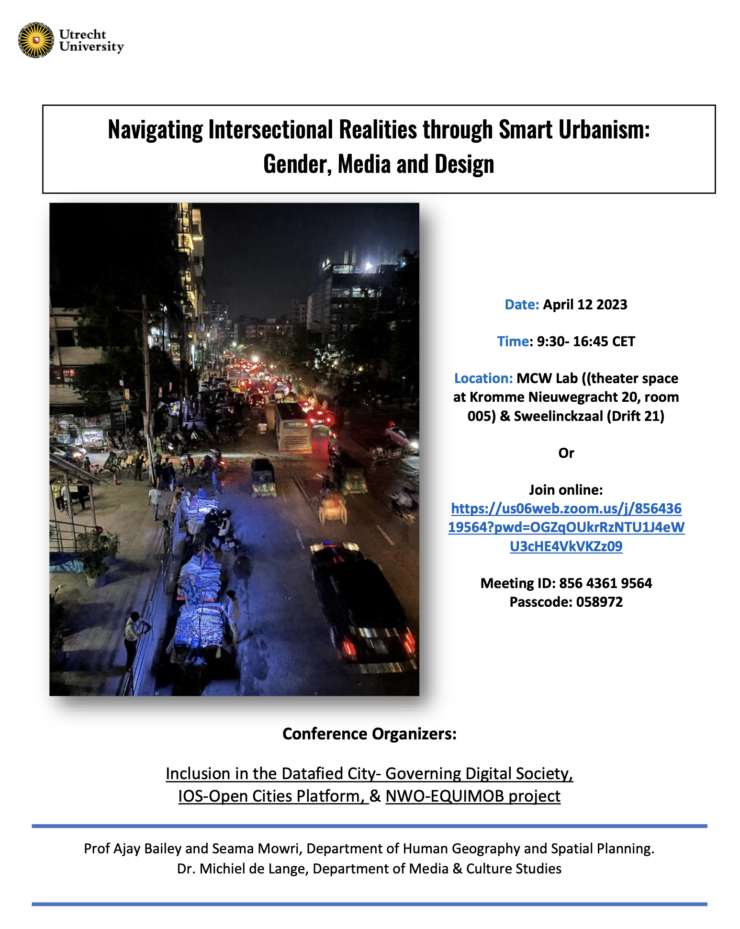Events
WORKSHOP “NAVIGATING INTERSECTIONAL REALITIES THROUGH SMART URBANISM: GENDER, MEDIA AND DESIGN”

Smart cities are touted all over the world as bringing benefits to all citizens, but in reality the fruits are not equally sweet for everyone. The smart city discourse positions itself on a path to achieving sustainability, equity and safety in urban spaces through the use of data, sensors, dashboards, platforms and infrastructures. Vulnerable groups and people on the margins (including women, older adults, people with disabilities, low-income communities, people of color, migrants and sans-papiers) remain largely absent from these discussions and developments. Despite calls for more inclusive approaches (e.g. people-centric smart urbanism, smart citizenship, social cities) the proposed ‘smartening’ of cities in practice continues to center around cookie-cutter technological fixes designed and implemented from a dominant androcentric perspective, without accounting for users with intersectional vulnerabilities. Oftentimes, these proposed ‘smart’ solutions benefit only a small section of the population while excluding and harming vulnerable groups and individuals. For example, the use of sensors, data and algorithms for increasing safety in public spaces may lead to exacerbating inequalities through over-policing. Mobility platforms and the ‘sharing economy’ benefit the able-bodied while disprivileging and even posing physical threats to elderly and people with disabilities on city streets, and by exploiting often undocumented people living on the margins. By contrast, a variety of projects and apps attempt to increase (the experience of) safety in public and transit spaces of women and LGBTQ+ people. How can we understand processes and discourses of in- and exclusion in today’s datafied smart cities? What can we learn from smart urbanisms in the Global South, and from street level experiences from vulnerable people? How can we contribute to more inclusive ‘smart urbanisms’ that are tailored to local histories, situations and needs?
Click here for the flyer: CFPGenderMediaDesign
Link to conference webpage on the Equimob website >>
Direct link to program booklet (pdf) >>

